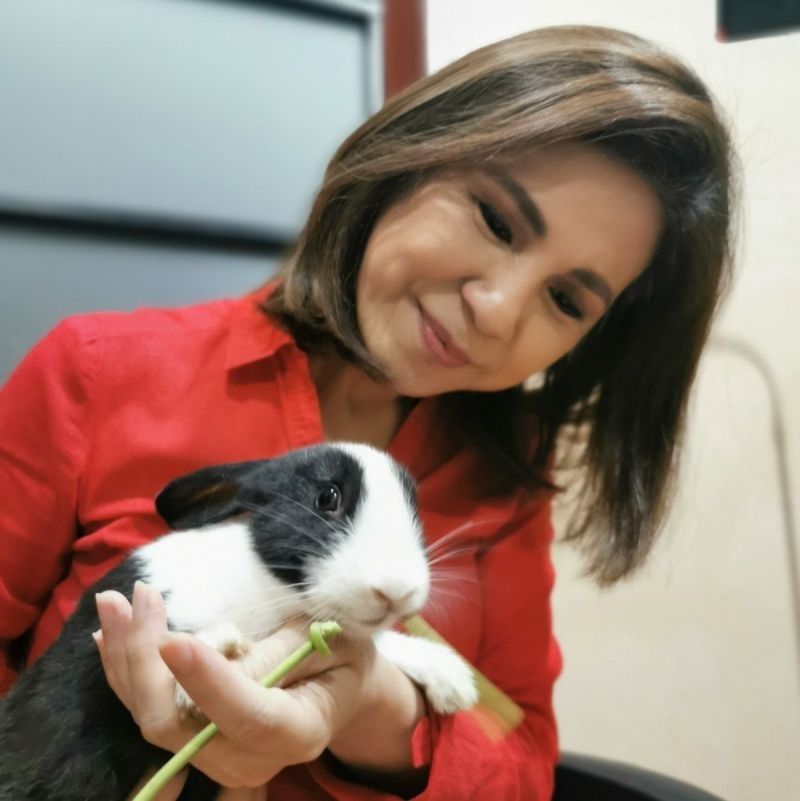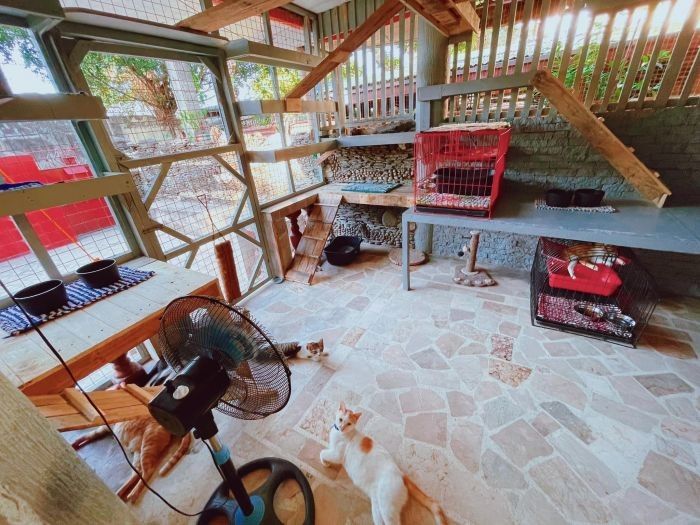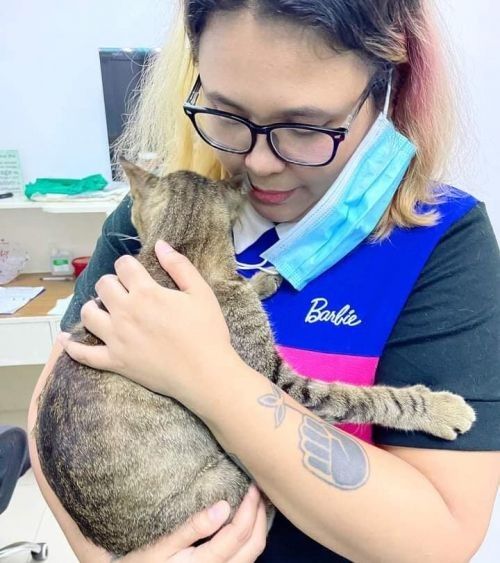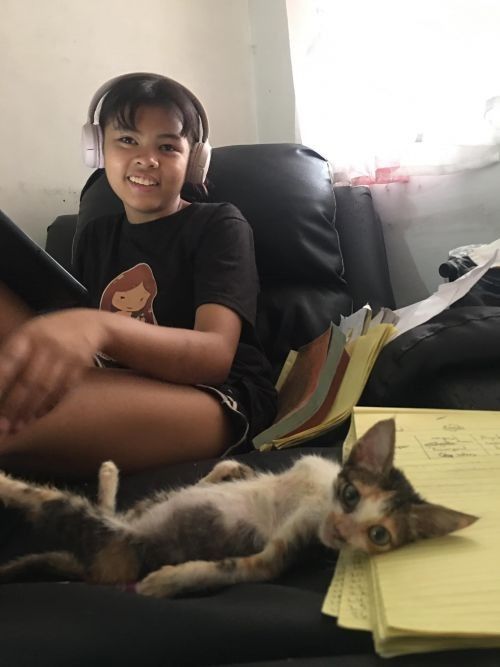Getting a ‘pandemic pet' in the Philippines: Is it for you?

COVID-19 has changed our life in ways we previously never imagined—most of it had to be done to protect not just our physical health but also our mental state. We would bake, paint, and do online yoga sessions to keep our cool from the anxieties caused by an invisible virus at large. Many of us have also adopted a "pandemic pet," a furry friend to help us go through the quarantine just by being their cute, loving selves.
This might be surprising, though: Pet adoptions have increased significantly since last year. In the US, as reported by Rover.com., it’s been "raining cats and dogs" with one out of three Americans rescuing a pet from March to October 2020.
"Of the people who adopted in the last year, 53% brought home a dog, 32% a cat, and 14% both a dog and cat," rover.com said. Thirteen percent of these mostly millennial people were new fur parents, the report continued.
I could only adore cats and dogs from a distance, mostly because my eldest daughter has allergies. But we now have pandemic pet rabbits, namely Sophia and James. I could honestly say they’ve helped myself, my hubby Nonong, our children, and even our helpers survive the much-dreaded cabin fever. My family and I would stay calm and relaxed just by feeding them, watching them chase each other, and training them — we’ve really included them in our daily bonding as a family. Personally, Sophia and James now play a big part in my self-care routine.
Being a pet owner is loads of fun, but I could also say it’s not as easy as any of these double tap-worthy #petsofinstagram photos would portray. I am blessed to have some means and company to care for two pets at home, but to those just wanting to shop or adopt for superficial reasons, it might not be that advisable.
It’s all under the principle of "responsible pet ownership." Or, as explained by the Philippine Animal Welfare Society (PAWS), "Before owning a pet, one should always consider if one has the capacity (timewise, financially, emotionally) to care for it responsibly for its entire lifetime, not just when it is a cute puppy."
Surely, it takes a lot to be a responsible pet owner. In our recent episode of Pamilya Talk, I’ve had the pleasure of talking to two wonder fur-moms who epitomize the term for their pure commitment and love for puspins and aspins (stray cats and dogs).

Arizza Aying, the mommy behind The Cat House, parents 120 cats and 10 dogs. Meanwhile, Jesica Baang of the Facebook page Pia and the Mimings, takes care of 24 cats. Alongside their advocacies, Arizza and Jesica also juggle (human) parenthood and two jobs.

Arizza Aying and her 9-year old cat, Tia Buding/Boots
Throughout our show (click on the link below for a sampling of Tia Buding’s antics, Arizza’s adorable and mega popular cat), I’ve gained a new appreciation for fur parents and rescuers. I’ve also realized why being one isn’t a joke—and so to those planning to take a pet soon, the following pointers might be worth considering.
Are you ready to be a parent?
It’s best to evaluate if you’re fit for the job in the first place. For first time pet owners, reading PAWS’ statement of policies on companion animals might help. PAWS stands by being "knowledgeable" of the responsibilities ahead. Aside from providing adequate food and water; secure, comfortable, unexposed shelter; and regular medical care, the organization also puts the pet’s physical, social, emotional and mental well-being of high importance. It sounds like raising a human being, right? Well, that’s because it almost exactly is—as both Arizza and Jesica would know as they also have kids with them. Once assured, evaluate your space next—is it ample enough for the pet to eat, play, rest, and do a pooh? Having a fur baby mess in a cramped place without apt and frequent sanitation, for example, might be risky for your own health.
‘Adopt, don’t shop’
Arizza and Jesica, along with many animal centers, advocate adoption over breeding. PAWS, for one, explains online its opposition to "puppy mills" or "facilities and individuals who mass-produce puppies for the pet shop industry, online selling, or other retail purposes." It writes, "Puppy mills suffer from poor oversight, control, and regulation. Ill health, genetic defects and/or negative behavior traits are often overlooked in favor of financial profit. The dogs used for breeding purposes are often insufficiently cared for, inhumanely housed, and lacking adequate veterinary care."

Jesica Baang of the Pia and the Mimings via Facebook
Know the basics
Population control is also a fur parenting issue, to which many responsible pet owners then advocate with spaying/neutering (pagkakapon). Irresponsible breeding leads to more pets untaken care of. This ultimately results to pet abandonment and demise, which is essentially the opposite of what Arizza, Jesica, and animal centers stand for. The sooner the spaying/neutering is done, the better, the ladies believe.
Vet on it
The spaying/neutering is only the first of many medical visits done in fur parenting. Besides the annual vet checkups, you will have to frequent the clinic for vaccination, deworming, and cases of sickness or injury. It can be costly and so not for everyone—Arizza and Jesica, in their case, work many jobs to support their rescues. Vet visits are a must, they say, as you cannot just conduct human-grade home remedies that aren’t exactly suitable for pets. If you can’t afford it, a low-cost clinic or a willing animal welfare group can be found nearby—for easy references, the ladies suggested engaging in pet parenting communities online including their own Facebook pages.
Patience is key

Pia, Jesica’s daughter with her cat, KP!
Again, pet parenting isn’t just one-sided—it’s working the totality. Besides focusing on the physical fitness, Arizza and Jesica both recommend socializing with your pets to aid their emotional and mental health."Walang pinagkaiba sa meron kang anak na tao. Mas mahirap pa kasi di sila nagsasalita," Arizza related. "Dahil nga tayo yung owner nila, kelangan naoobserbahan natin kung ano ang behavior nila. So alam dapat natin pati yung eating habits nila—humina ba o napansin nating di sya masigla?" The Cat House matriarch, in particular, pointed out that some pets have had past trauma—so being aware of supposedly simple things and instances that would shake them randomly should be key.
--
Please watch Pamilya Talk on Facebook, YouTube and Kumu (@JingCastaneda – 6pm Monday & Wednesday; 7 p.m. Tuesday). Please share your stories or suggest topics at jingcastaneda21@gmail.com. You can also follow and send your comments via my social media accounts: Instagram, Facebook, YouTube, Twitter and Kumu.



















